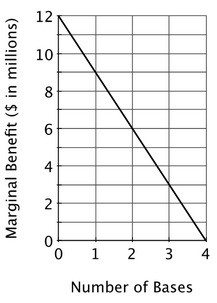The three phases of consumption behavior—each identified by a different MPC—of Modigliani's life-cycle hypothesis are
a. young adults, middle age, and near or in retirement
b. apprentice, skilled, professional
c. staff, manager, senior manager
d. agricultural, industrial, services
e. urban, rural, international
A
You might also like to view...
One group of people uses New York City subways only during rush hour to travel to and from work. Another group uses them only in midday for leisure activity. If New York City wants to increase transit fares with the smallest possible reduction in revenue, for which group should it increase the fare?
a. The rush-hour group because its demand for subway service is more elastic than that of the midday group. b. The rush-hour group because its demand for subway service is less elastic than that of the midday group. c. The midday group because its demand for subway service is more elastic than that of the rush-hour group. d. The midday group because its demand for subway service is less elastic than that of the rush-hour group. e. It doesn't matter because both groups have the same elasticity of demand.
There are ten states in the democratic nation of Katlandia, and each state has ten thousand residents. Although incomes vary, each Katlandian pays a tax equal to the total cost of all government projects divided by the number of residents in the country. Currently, two states each have one army base. An army base adds $2 million to a state's local economy each year. In addition, in terms of increased security, the annual marginal benefit to Katlandia of having an additional army base is shown below. The total cost of an army base is $8 million per year. Suppose the department of defense proposes to build a third base in the state of New Porkswick. The
Suppose the department of defense proposes to build a third base in the state of New Porkswick. The
state representative from New Porkswick will ________ this proposal because ________. A. support; it is socially optimal for Katlandia to have a third army base. B. not support; the benefits to his or her constituents would be smaller than the resulting increase in taxes. C. not support; it is not socially optimal for Katlandia to have a third army base. D. support; the benefits to his or her constituents would outweigh the resulting increase in taxes.